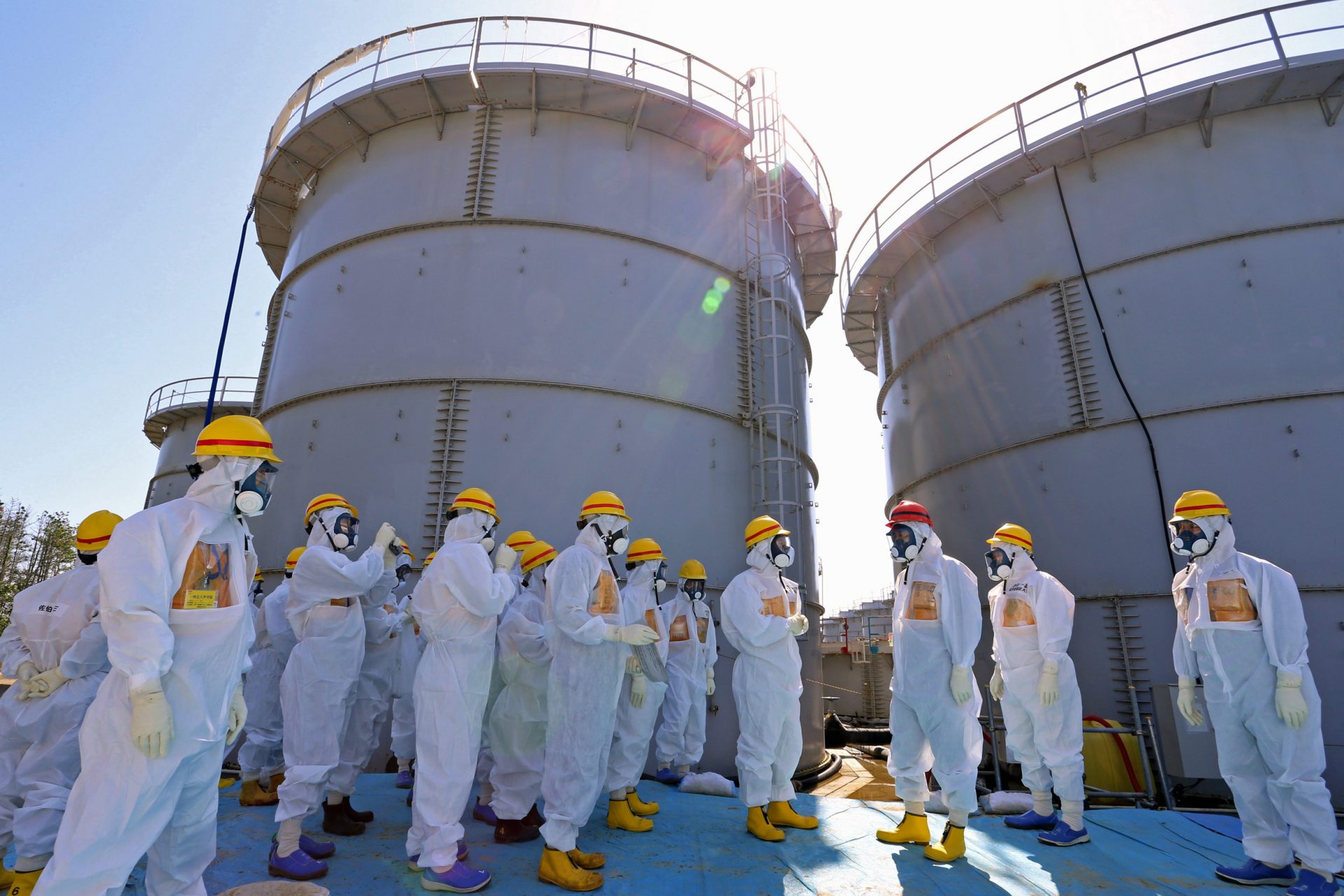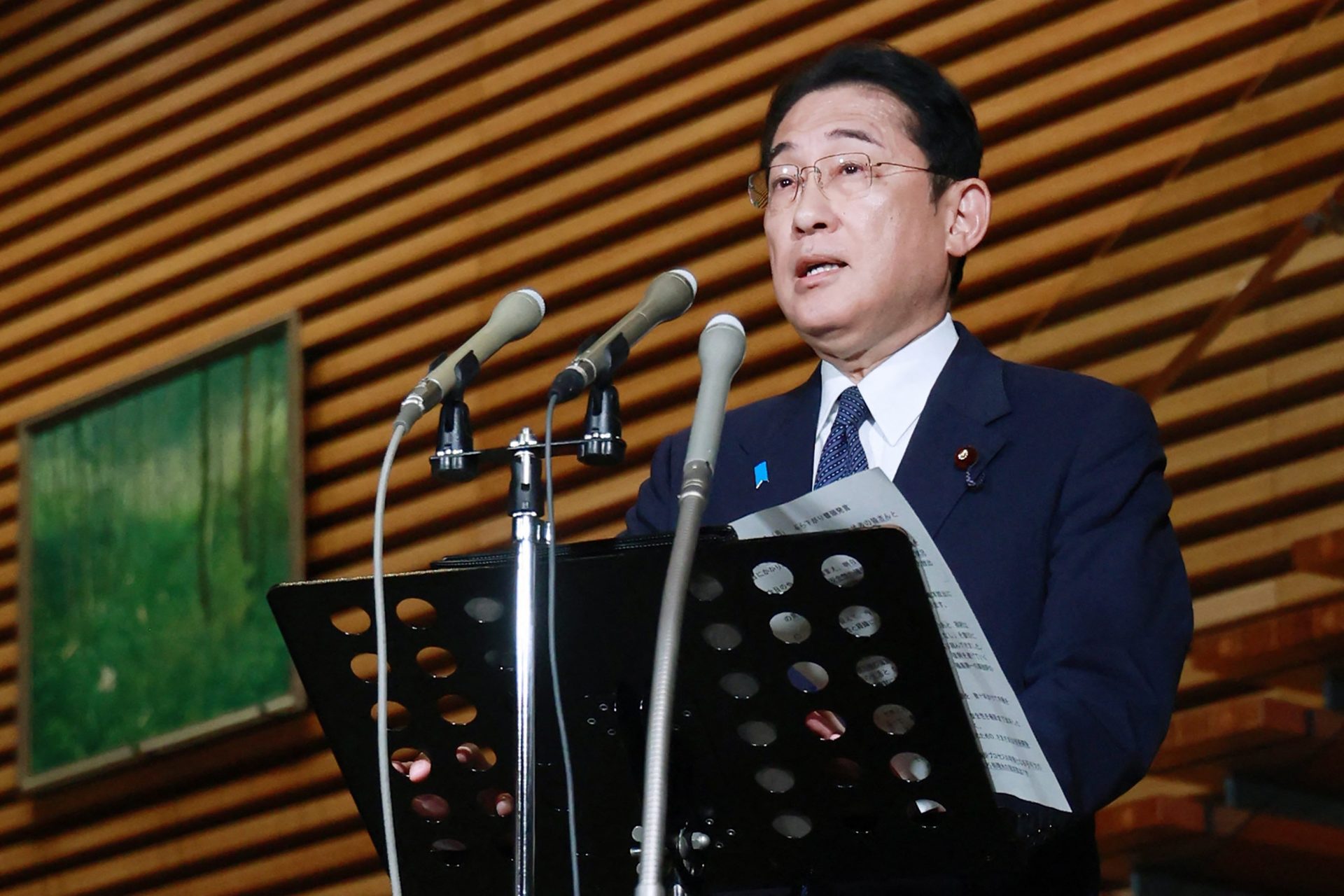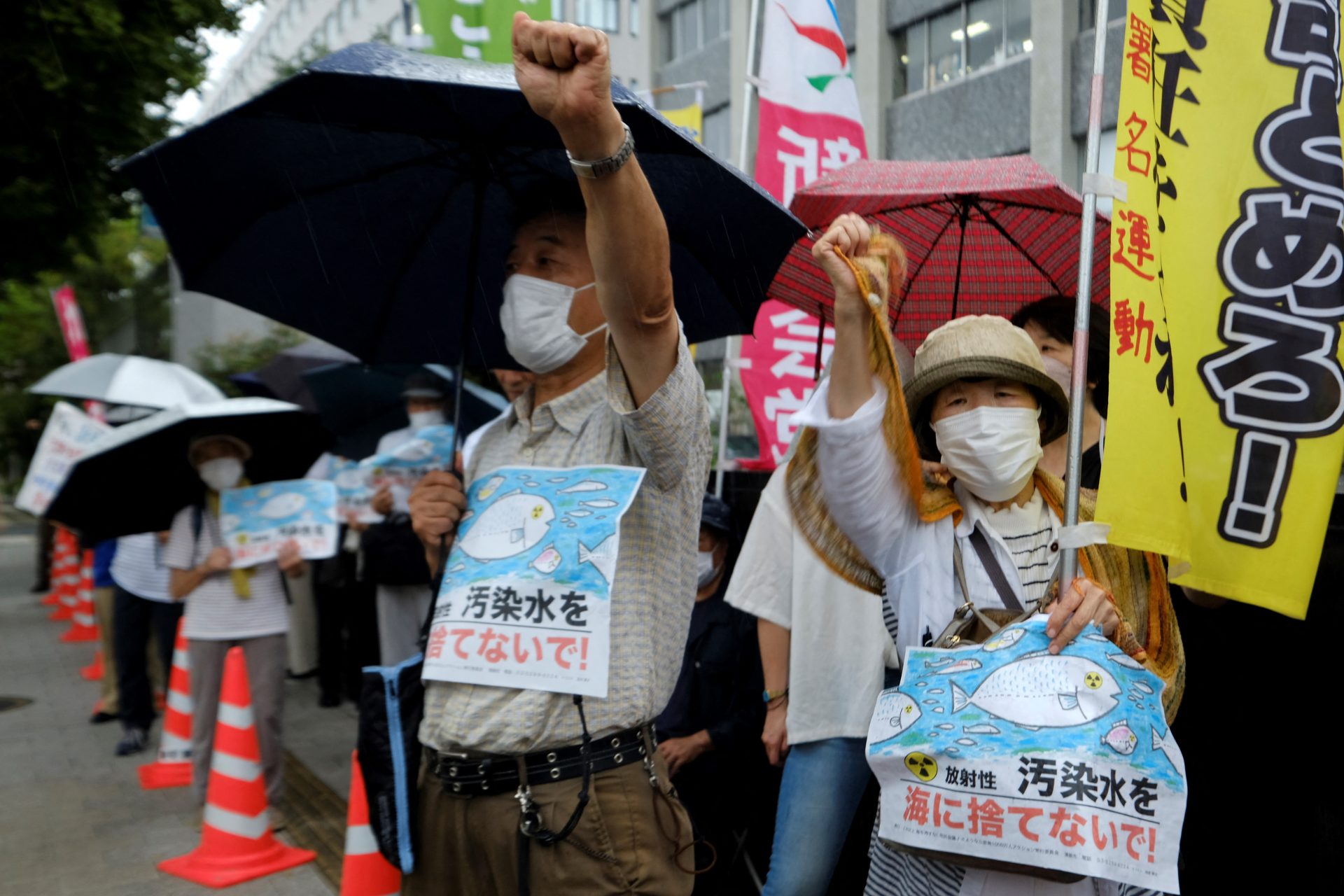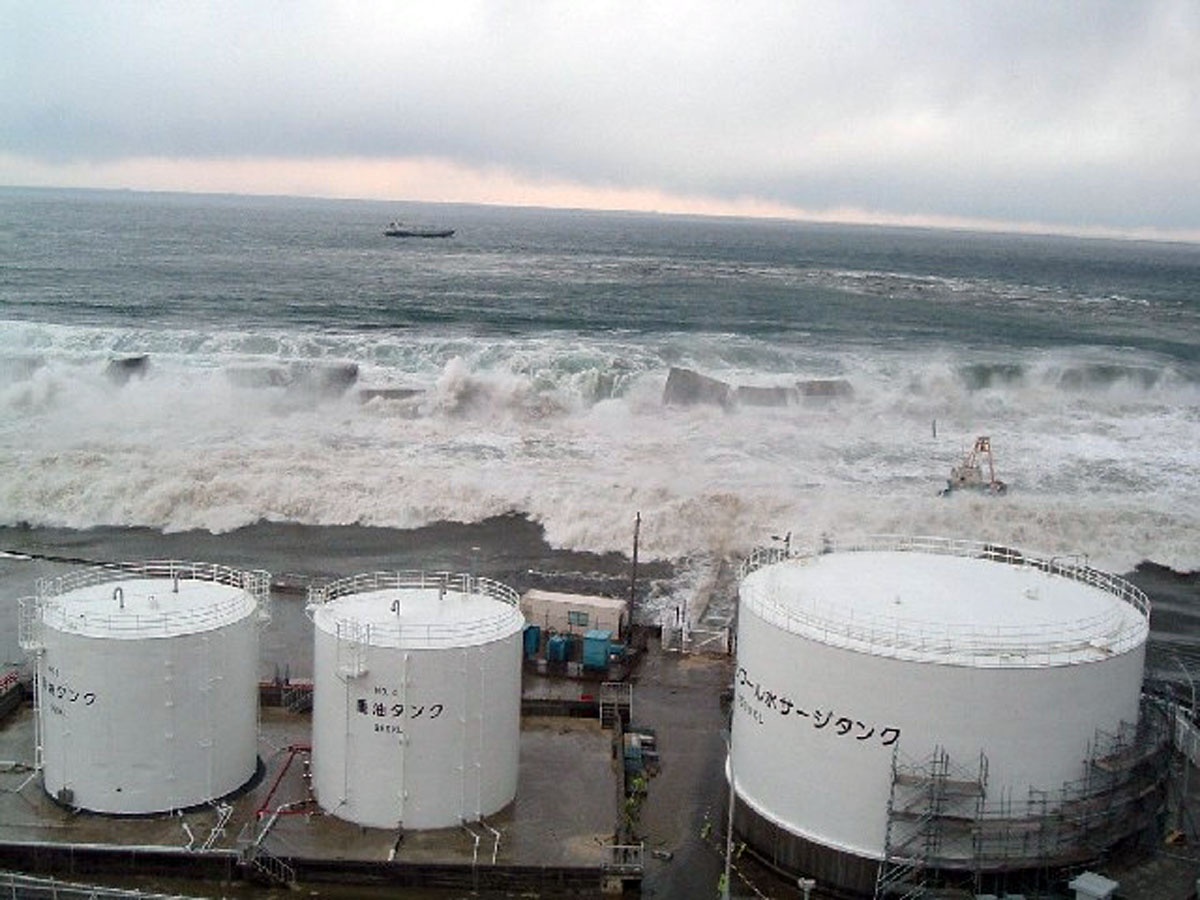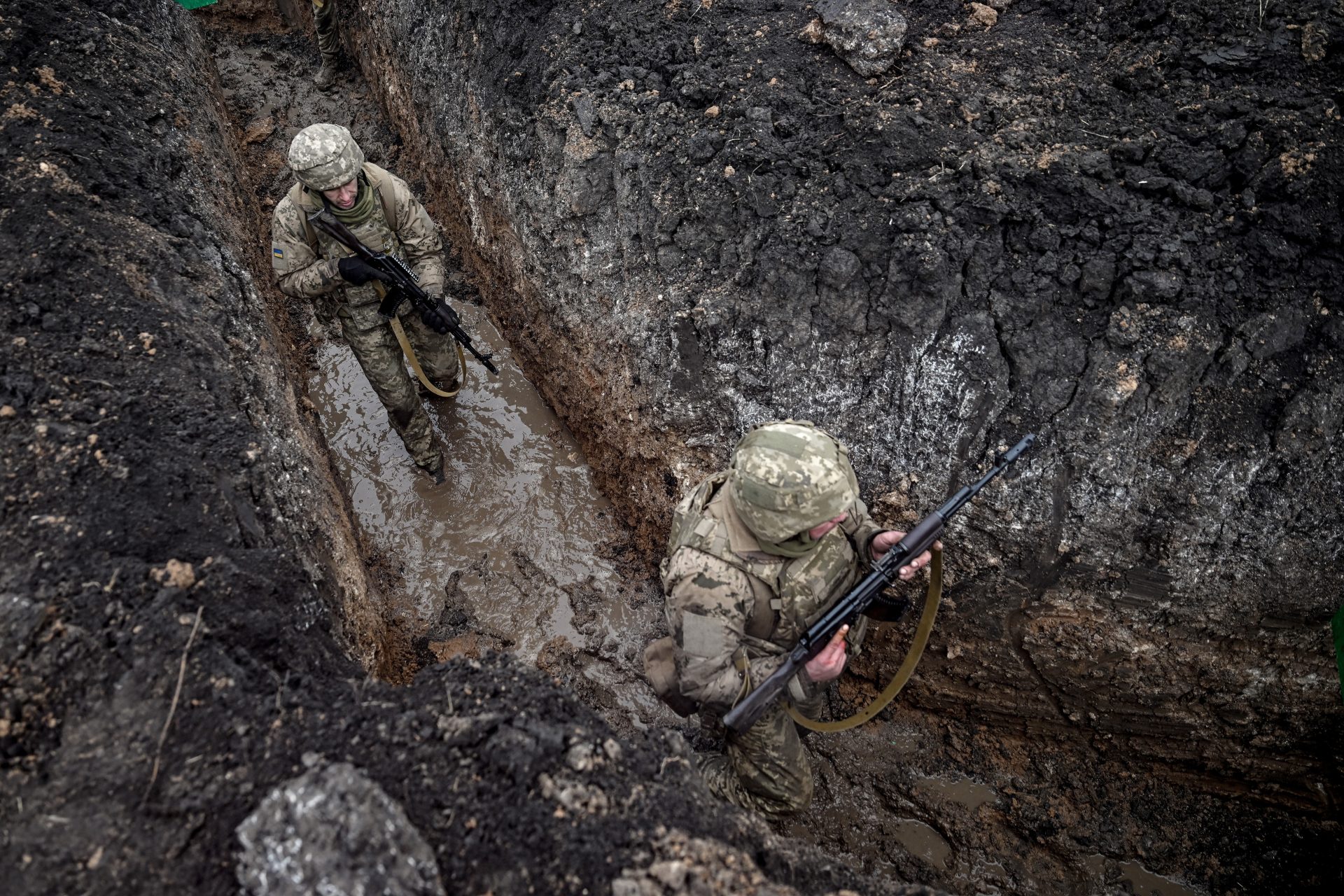Japan's Fukushima nuclear wastewater will be released August 24
Despite protests, Japan will begin the release of the treated radioactive wastewater from the Fukushima nuclear plant disaster on Thursday, August 24th.
According to The Guardian, Japanese PM Fumio Kishida told the press on August 22 that he had requested that Tokyo Electric Power, the nuclear plant's operator, "to swiftly prepare for the water discharge, " adding that the release would begin on August 24, "weather and ocean conditions permitting".
However, many Japanese citizens are not happy about this development. The BBC reported that a crowd protested outside of the Japanese PM's official residence in Tokyo on August 22, demanding that the government not go through with the release.
According to CNN, Japan received approval from the United Nations' nuclear watchdog, the International Atomic Energy Agency (IAEA), to release the treated radioactive water into the Pacific Ocean.
This decision comes 12 years after the Fukushima nuclear disaster in 2011, when a tsunami badly damaged the plant and left, according to the BBC, more than a million tonnes of treated wastewater at the facility.
The plan to release the treated wastewater has been under consideration for several years due to the limited space to contain the contaminated material.
As reported by CNN, in 2019, Japan's environment minister said there were "no other options" than to release the contaminated water.
According to various news agencies, the International Atomic Energy Agency's chief, Rafael Grossi, visited Japan on July 4th, 2023, to present the UN body's safety review to Prime Minister Fumio Kishida.
However, the UN's approval has not alleviated concerns among both locals and residents of neighbouring countries. In particular, as pointed out by the BBC, Japanese fishermen, who still feel the impact of the 2011 disaster, are very concerned.
In addition, China disputes the IAEA's findings, claiming that they do not prove the legality and legitimacy of the wastewater release, and the Chinese government have even accused Japan of treating the ocean as a "private sewer", according to the BBC.
The Fukushima nuclear plant suffered damage to its power supply and cooling systems during the 2011 earthquake and tsunami. As a result, the reactor cores overheated and contaminated the water within the plant with highly radioactive material.
According to various media outlets, since then, new water has been continuously pumped into the reactors to cool fuel debris. Additionally, groundwater and rainwater have seeped into the plant, creating more radioactive wastewater that needs to be stored and treated.
As reported by the BBC, the Tokyo Electric Power Company (TEPCO), a state-owned electricity firm, has constructed over 1,000 large tanks to store the accumulated 1.32 million metric tons of wastewater, equivalent to more than 500 Olympic pools.
However, space for additional tanks is limited, and freeing up space is crucial for the safe decommissioning of the plant.
While the majority of the dangerous elements in the radioactive wastewater can be removed through treatment, the main concern is the hydrogen isotope called radioactive tritium, which cannot be eliminated with the current technology available.
CNN reports that the Japanese government, TEPCO, and the IAEA argue that the treated water will be highly diluted and released slowly over decades.
The experts claim that the concentration of tritium to be released will be similar to or lower than what other countries allow, meeting international safety and environmental regulations. They also note that tritium occurs naturally in the environment and that releasing small amounts into the sea should be safe.
However, experts hold differing views on the potential risks. According to a CNN article on the subject, some experts, like the Canadian Nuclear Safety Commission, state that tritium is too weak to penetrate the skin but acknowledge that consuming substantial quantities could increase the risk of cancer.
In addition, the US Nuclear Regulatory Commission acknowledges that any exposure to radiation carries some health risks but points out that everyone is exposed to small amounts of tritium daily.
Critics, including Robert H. Richmond from the University of Hawaii, told CNN that diluting the wastewater may not sufficiently reduce its impact on marine life.
Naysayers highlight concerns that pollutants like tritium can pass through various levels of the food chain and accumulate in the marine ecosystem.
Given the existing stress on the world's oceans from climate change, ocean acidification, overfishing, and pollution, releasing the wastewater could further harm marine environments.
Per the BBC, the process of releasing the water involves treating it to eliminate removable harmful elements, storing it in tanks, and analyzing its radioactivity levels. Much of the water will undergo a second round of treatment before being diluted to a concentration of 1,500 becquerels of tritium per liter of clean water.
Scientists have told the media that this concentration is significantly lower than Japan's regulatory limit of 60,000 becquerels per liter. The diluted water will be released into the Pacific Ocean through an undersea tunnel off the coast. Third-party organizations, including the IAEA, will monitor the discharge during and after the release.
These claims have done little to calm Japan's neighbours. South Koreans are particularly concerned. Per the BBC, 80% of South Koreans oppose the release of the wastewater.
Furthermore, the South Korean parliament passed a resolution during the last week of June in opposition to the plan. However, it remains unclear if this will have any impact on Japan's actions.
One action that South Korea has taken certainly will impact Japan's economy, particularly if other countries follow suit. South Korea has imposed a strict ban on Japanese seafood imports from areas close to Fukushima, and officials say they will be intensifying their inspections.
We can only hope that the experts are correct and it will not lead to dangerous consequences for humans or the planet.
More for you
Top Stories



